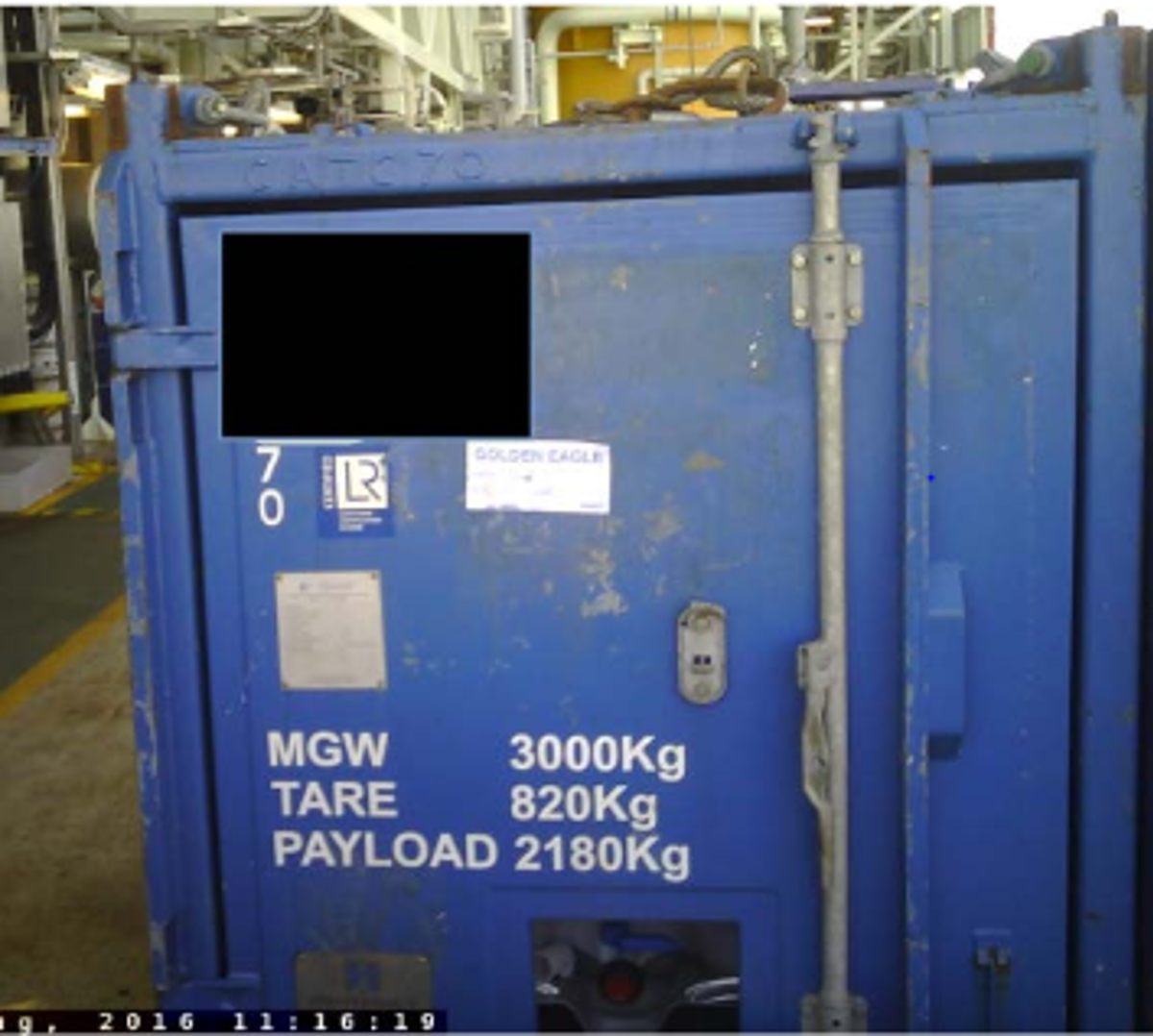CCU door unlatched whilst being lifted from PSV to platform
- Safety Flash
- Published on 24 October 2016
- Generated on 16 February 2026
- IMCA SF 29/16
- 1 minute read
Jump to:
The MSF has published a safety alert regarding an incident in which the door on a cargo carrying unit (CCU) unlatched during lifting operations.
What happened?
The incident occurred when an IBC carrier was being stowed on-board a PSV. As with the rest of the cargo, the door had been closed and secured with a tie-wrap prior to shipment. As the container was being lifted across the installation, it was observed that the door handle had unlatched. On opening the IBC carrier, it was identified that the IBC itself had not been secured within the carrier.

On further investigation, it was determined that the IBC carrier was of inadequate design. There were no securing points within the unit to enable the IBC to be secured and externally there were no buffers to prevent the door handle from being snagged by other cargo. It would have been possible for the IBC to have shifted internally creating sufficient force to open the IBC carrier door, with the result that the IBC may have fallen out during lifting operations from the platform.
Related Safety Flashes
-
IMCA SF 15/15
13 October 2015
-
IMCA SF 10/13
25 June 2013
IMCA Safety Flashes summarise key safety matters and incidents, allowing lessons to be more easily learnt for the benefit of the entire offshore industry.
The effectiveness of the IMCA Safety Flash system depends on the industry sharing information and so avoiding repeat incidents. Incidents are classified according to IOGP's Life Saving Rules.
All information is anonymised or sanitised, as appropriate, and warnings for graphic content included where possible.
IMCA makes every effort to ensure both the accuracy and reliability of the information shared, but is not be liable for any guidance and/or recommendation and/or statement herein contained.
The information contained in this document does not fulfil or replace any individual's or Member's legal, regulatory or other duties or obligations in respect of their operations. Individuals and Members remain solely responsible for the safe, lawful and proper conduct of their operations.
Share your safety incidents with IMCA online. Sign-up to receive Safety Flashes straight to your email.